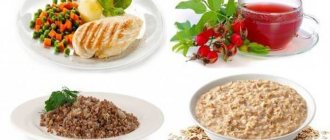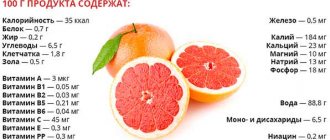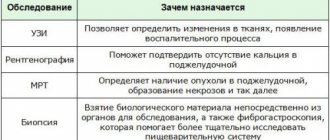Pancreatitis is a dangerous disease that affects the pancreas. This is an internal organ that is involved in the digestive process. Unhealthy Lifestyle, systematic alcohol consumption and poor nutrition lead to the formation of inflammatory processes in the pancreas. If comprehensive treatment is not started, the disease will worsen, may become chronic, lead to the development of various complications, and there is a possibility of death. Drinking alcohol during pancreatitis aggravates the situation, increases the intensity and number of dangerous consequences.
Features of pancreatitis
The development of this disease is characterized by inflammation of the pancreas tissue. At the same time, the internal organ ceases to perform its main functions, that is, to produce pancreatic juice necessary for the breakdown of food as it passes through the small intestine. The amount of enzymes that make up pancreatic juice is greatly reduced - these are:
- lipases;
- amylase;
- chymotrypsin and trypsin;
- insulin;
- glucagon;
- polypeptide.
Thanks to them, fatty acids are processed, carbohydrates and proteins are broken down. Due to the development of the disease, the ducts of the gland are blocked, which causes a collection of pancreatic juice in the intestinal supply. At the same time, enzymes carry out their work by processing living tissues of the body along with food.
With pancreatitis, the pancreas itself suffers the most. Gradually, neighboring internal organs begin to be subjected to intense negative effects of enzymes, which are also destroyed, and blood vessels experience a negative effect. When cells are destroyed, enzyme activity gradually increases, which poses an additional danger to the body, since the affected area gradually increases.
In the most severe situations with this disease, tissue necrosis develops when the pancreas stops functioning and dies completely. If damage to adjacent internal organs and blood vessels becomes too extensive, this leads to the death of the patient.
The essence of pathology
The pancreas plays an important role in both the digestive and endocrine systems. It is responsible for the production of enzymes involved in the digestion of food. Thanks to them, carbohydrates, proteins and fats are absorbed. In addition, the gland produces hormones, among which insulin is of particular importance.
With pancreatitis, inflammation of the gland tissue is observed, and at the same time the function of the organ changes. In addition to inflammatory processes, tumors, cysts, and spasms of the ducts may occur. Against the background of these disorders, it becomes difficult to produce secretions and release them into the digestive system. Its own secretion remains inside the gland and begins to corrode it itself. With a spasm, in addition to pancreatic juice, reverse reflux of bile is possible, which worsens the situation. Enzymes begin to process the organ’s own cells. Decay products poison the body, entering the general bloodstream and causing acute intoxication. This is accompanied by severe abdominal pain, nausea, vomiting, and often there is an increase in temperature and stool disturbances.
The main reasons that cause inflammation of the organ are the following:
- Acute intoxication, in particular with alcoholic beverages.
- Trauma or other direct damage to an organ.
- Allergic reaction.
- Poisoning with toxins, drugs.
- Cholelithiasis.
Regardless of what caused pancreatitis, the mechanism of development of the process is the same. The gland's enzymes are not capable of breaking down nutrients until they enter the duodenum. For one reason or another, after entering the duodenum, they return back to the ducts of the organ. Enzymes begin to damage the gland cells, causing their destruction. The inflammatory process intensifies, pronounced swelling appears, which further complicates the release of enzymes. But the problem is that the secretion of enzymes continues at the same pace. This leads to the formation of areas of necrosis, and tissues die. Gradually, in the absence of treatment, the process spreads to surrounding organs and tissues.
A gastroenterologist works with pathologies of the pancreas, but the problem is that inflammation of this organ and subsequent necrosis develop extremely quickly. In this case, you cannot wait for your scheduled doctor’s appointment. It is important to call emergency medical assistance. Often in such a situation, emergency surgery is prescribed.
Reasons for the formation of the disease
The main reasons why pancreatitis develops are an unhealthy lifestyle with poor and unhealthy diet. Experts consider the following risk factors:
- systematic consumption of alcohol in large quantities;
- presence of spicy and fatty foods in the diet;
- concomitant diseases of the gastrointestinal tract, primarily hepatitis, cholelithiasis, gastritis;
- oncological diseases;
- injuries and damage to internal organs, unsuccessful surgical operations;
- long-term use of aggressive drugs without doctor’s recommendations, for example, antibiotics;
- irregular nutrition, as well as diets that disrupt the stable functioning of the body, frequent periods of fasting.
For women, hormonal imbalances caused by pregnancy, taking powerful hormonal drugs, and menopause become an additional risk factor.
If the patient does not pay attention to the obvious symptoms of this disease, pancreatitis becomes chronic.
How to help the pancreas after a binge
Treatment of pancreatitis in people with alcohol addiction is carried out by a narcologist, therapist, gastroenterologist, endoscopist, endocrinologist, surgeon - that is, the therapy is comprehensive and does not provide for a “one-sided” approach. The first condition is an immediate cessation of drinking alcohol. For this purpose, the addict is handed over to a narcologist. It carries out detoxification, which allows:
- stop drinking;
- remove alcohol and its toxic metabolites;
- improve the functioning of all internal organs;
- reduce cravings for drinking.
In parallel, procedures are carried out to help relieve the inflammatory process in the pancreas. Particular attention is paid to the fasting diet. It may last for several days.
In untreated cases, it is possible to stabilize the situation with medication. The patient is prescribed replacement therapy, which is based on enzyme medications. Also used are analgesics, antispasmodics, antiemetics, vitamin-mineral compounds, and anti-inflammatory ones.
If there are cysts, fistulas, or abscesses, surgery is indicated. The affected areas are surgically removed, the cysts are opened and the resulting cavities are cleaned, and the fistulas are closed. In complex cases of the disease, resection of part of the pancreas may be required.
Treatment of alcoholic pancreatitis should take place in a hospital. After discharge, the patient must follow a strict therapeutic diet for the rest of his life. Alcohol and cigarettes will be contraindicated for him.
How does pancreatitis manifest?
Depending on the form and stage of this disease, its manifestations may be different. In most cases, the following symptoms are observed:
- The patient suffers from severe girdle pain. It manifests itself most clearly in the right and left hypochondrium. It cannot be stopped with the help of medications; attacks can last from several hours to one day.
- Appetite completely disappears.
- Attacks of nausea appear, turning into vomiting. The latter contains bile.
- Arrhythmia, elevated body temperature against the background of low blood pressure.
- The mucous membranes in the mouth are very dry, the patient suffers from hiccups and heartburn.
- Abdominal bloating occurs.
- Constipation or diarrhea. Feces contain elements of food that have not been digested.
- Yellowness or bluishness of the skin, pronounced pallor .
- General health worsens significantly, weight decreases.
Indications, contraindications and application features
Pancreatin is intended for use in cases of digestive disorders This is usually done for the following diseases:
- inflammation of the liver and intestines, which causes reduced secretion of digestive enzymes;
- congenital low activity of the glands that secrete gastric juice;
- after surgical removal of part of the stomach and intestines;
- chronic pancreatitis, with a decrease in the secretion of gastric juice;
- with a sedentary lifestyle and violation of the prescribed diet;
- violation of the patency of the bile ducts;
- chronic hepatitis;
- colitis.
Pancreatin is effectively used in preparing a patient for various types of examinations, for example, endoscopy, x-rays and endoscopy. After such aggressive procedures with the help of the drug, the patient’s recovery occurs much faster.
Some doctors recommend using Pancreatin after excessive and heavy feasts, especially if they were accompanied by the consumption of fatty and fried foods. This helps speed up the digestion process of food.
However, like most medications, Pancreatin has some contraindications. For example, it should not be used if there is a history of chronic or acute pancreatitis, or if there is an individual intolerance to the components it contains.
An interesting fact is that present in the preparation are made from the pancreas tissue of pigs. Accordingly, if pork is poorly tolerated, it is not recommended to use the medicine. The drug also has side effects that may include the following:
- the appearance of red spots;
- the occurrence of edematous phenomena;
- itching;
- burning;
- increased secretion of uric acid;
- increased uric acid levels in the blood;
- discomfort in the stomach;
- stool disorder;
- urge to vomit;
- nausea.
Despite the benefits of Pancreatin in many manifestations of digestive disorders, doctors do not recommend getting too carried away with its use for preventive purposes. This can cause a disorder in the secretory function of the gastrointestinal tract and lead to excess weight gain. If you decide to consume it, it is optimal to do it simultaneously with the process of eating. Otherwise, this will lead to heartburn. Pancreatin should be taken with a large amount of any non-alcoholic drink.
Depending on the person’s health status and diagnosis, the course of treatment with the drug can vary greatly. Therapy should last from several days to several months. Sometimes the patient has to take the drug for the rest of his life. The duration of treatment and dosage of the drug is prescribed by the attending physician. It is better not to take medicine without a doctor's prescription.
How does alcohol affect the pancreas?
Systematic consumption of alcohol in large quantities is one of the most common causes of inflammation of this internal organ. Alcohol affects the pancreas in the following ways:
- Ethanol disrupts the normal activity of the sphincter of Oddi, which connects the duodenum and pancreas.
- Alcoholic drinks, when they enter the stomach, increase the secretion of digestive enzymes due to their irritating effect on the glands.
- The pancreatic ducts become severely inflamed, gradually beginning to die. Fibrous tissue forms at this site.
- Pancreatic juice, due to an increase in the amount of lithostatin in its composition, becomes too viscous, and its usefulness for the body decreases.
- Pancreatic enzymes and bile stagnate in the ducts.
- The outflow of fluids is disrupted, and they flow back into the pancreas from the duodenum.
- Aggressive substances containing pancreatic juice begin to corrode the internal organ instead of digesting food.
Such problems arise when a person begins to drink systematically for at least five to seven years. If you drink alcohol in large quantities, pathological consequences will occur much earlier, after about three to four years.
In addition to regular alcohol intoxication, even a one-time toxic shock can lead to the formation of this chronic disease if you drink too much. In this case, the body cannot cope with the effect of acetate, which begins to actively destroy it, as a result, almost any internal organ can fail.
Other ways to restore the body
To prevent the negative effects of alcohol, after drinking it is better to fast for several days, with the gradual introduction of fermented milk products into the diet. You can also relieve the gland and simplify its functioning by using means for the discharge of bile:
- Rowan infusion (there is a large supply of vitamins and other necessary components, with a hangover syndrome it has a choleretic, membrane-stabilizing, antitoxic, antimicrobial, stimulating effect);
- Rosehip infusion (includes vitamins P, C, A and K, choleretic elements);
- Magnesia (magnesium sulfate). The element reduces the risk of hangover complications, benefiting the nerves, cardiovascular system and digestive tract.
An effective method would be simple vomiting, which eliminates harmful elements that are retained in the stomach. The load on the pancreas is also removed. As a rule, two or three times are enough. If the gag reflex does not stop, then you need to contact an ambulance.
Preliminary support
Before drinking alcohol for pancreatic problems, you can carry out preparatory procedures. On the day of the feast, it is better not to eat fatty foods in the morning and use enzymes with choleretic drugs. Liv-52, 2 tablespoons of rosehip syrup, choleretic collection No. 2, infusion of corn silk (infusion of a couple of tablespoons in 200 ml of boiling water) are also used.
The drugs will cause the outflow of bile, improving the digestibility of alcohol in the evening.
Why is it better not to overeat at the table?
Experts have long noticed the negative effects of alcohol on the pancreas. Therefore, it is not recommended to eat a lot when drinking heavily. Serious damage to the gland has been observed when heavy snacks are consumed in large quantities. It is not advisable to eat difficult-to-digest protein foods (poultry, legumes, fatty meat, sausages).
If you can’t eat in moderation, then you can take Mezim-Forte or use other means that alleviate a hangover and digestion of food, and contact the specialists of the Private Ambulance No. 1 clinic
The influence of strong alcohol
With pancreatitis, the patient is strictly prohibited from drinking alcohol in any form and in any quantity. If a person has developed a chronic addiction, he, as a rule, neglects these recommendations received from the doctor. If it is strong alcohol, then such carelessness will not only interfere with recovery, but can also provoke death.
Moreover, even a small dose can lead to pathological consequences. The ethanol contained in it is transformed into acetaldehyde, a toxic substance that destroys pancreatic cells, leading to problems with the normal functioning of the sphincter of Oddi and disturbances in the blood flow.
Thus, any strong alcohol has a destructive effect on the healthy pancreas; with pancreatitis, alcohol triggers irreversible pathological consequences that can provoke tissue necrosis. Even a small dose for a person in this condition can be fatal.
Sign up for a free consultation by phone
Over the phone, the doctor will collect a primary medical history, form a team, and inform you about the exact cost of the procedure and the time of arrival of the narcologist.
Promotion!
When ordering inpatient treatment - up to 20% discount
By clicking on the “Submit Application” button, you agree to the processing of personal data
Statistical data
Almost half of acute alcoholic pancreatitis occurs due to the abuse of large amounts of alcoholic beverages. Even in countries with the highest standard of living, almost half of people who regularly abuse alcohol suffer from chronic pancreatitis. The remaining half, although there was no such diagnosis, were found to have inflammation of the pancreas during the autopsy after death. What is not clear is why they had not previously complained of pain in the area under the ribs, despite the fact that their pancreatic tissue was damaged.
If a person regularly drinks alcohol, that is, does it every day or every other day, then with a high probability we can say that in a few years he will be diagnosed with pancreatitis. To do this, it is enough that he consumes at least eighty grams of ethanol daily, which, translated into the equivalent, will be equal to 200 g of vodka. If in the region where he lives everything is in order with the environment, then it will take ten to fifteen years, but if the environment is polluted, then after three, maximum four years, alcoholic pancreatitis will make itself felt.
It doesn’t matter what strength the alcoholic drink that enters the body is, it can be beer or whiskey. This does not in any way affect the speed at which the first symptoms appear or the severity of damage to the pancreas. More important is the quantity of pure ethanol supplied. The permissible limit must not be exceeded. The more ethanol enters the body, the more noticeable is the damage to the gland and the disruption of its activity. According to statistics, if a person drinks at least twenty grams of ethanol daily (equivalent to fifty grams of vodka), this can also cause the formation of a similar disease.
As soon as the patient stops drinking alcohol altogether, his number of attacks immediately decreases and the pain sensations cease to be so strong and sharp. The disease begins to gradually fade away. There are cases when a person recovers completely after long treatment.
If a person regularly abuses alcohol, then sooner or later he will be diagnosed with either pancreatitis, liver cirrhosis, or brain atrophy. Such a person will gradually degrade as a person.
Low alcohol
Due to health problems, a person may give up strong alcohol, but at the same time allows the consumption of low-alcohol drinks, such as wine or beer. This is also unacceptable; according to doctors, a sober lifestyle is required for at least five years after the discovery of this disease. Only during remissions is it possible to start drinking alcohol, but in minimal quantities - no more than 50 ml of strong alcohol for one or two days.
Low-alcohol drinks also negatively affect the body, so consuming them is strictly prohibited.
- One bottle of wine contains approximately the same amount of ethanol as a glass of vodka.
- Sweet and semi-sweet wines contain so much sugar that they cause a sharp increase in glucose levels. The pancreas reacts to this by starting to intensively produce insulin, and the patient’s general well-being worsens.
- Beer and champagne, like any other carbonated drinks, pose the greatest danger. The carbon dioxide they contain has a destructive effect on the gastric mucosa, which increases the rate of absorption of ethanol in the body. A serious blow is dealt to all internal organs without exception.
Non-alcoholic alcoholic drinks, such as zero beer, are also prohibited. After all, it also contains alcohol, albeit in minimal quantities - the strength is no more than 1.5%. If a person has a chronic disease, this will be enough to trigger an exacerbation. Beer is also dangerous because it contains a lot of simple carbohydrates, which increase the load on the pancreas. After just one can, the disease can go into the acute phase, requiring hospitalization in the clinic.
What does the strength of the drink matter?
The alcohol market today is very wide and everyone can choose a drink based on how the body reacts to it. All presented drinks differ in strength, taste, quality and method of preparation. Some patients can easily tolerate strong drinks in small doses, while others prefer light cocktails. But one thing remains unchanged - the minimum dose of alcohol.
Vodka is considered one of the purest drinks. It does not contain any additives, flavors or chemicals, unless, of course, we are talking about a high-quality drink. According to the standard, the composition must contain water and alcohol. For this reason, it is believed that if you have pancreatitis, a couple of drinks will not do any harm. At the same time, vodka has high degrees, which makes the drink especially dangerous. Even a small dose of such a drink has a bad effect on organ cells and can cause a sharp deterioration in well-being. Thus, doctors prohibit drinking cognac and vodka when is inflamed .
Separately, it is worth considering low-alcohol drinks. Thus, beer has a low alcohol content. At first glance, the drink is safe for a person with pancreatitis. But there is a nuance here. Beer is often consumed in very large quantities. As a result, an excessive amount of ethanol enters the body, which is no less dangerous than drinking strong drinks. So, a liter of beer contains fifty milliliters of alcohol. This is already considered a toxic dose for the gland. If you drink an intoxicating drink often and in large quantities, the risk of beer pancreatitis increases. It is also worth noting that beer has a high glycemic index. Accordingly, the organ has to work twice as hard, producing enzymes and hormones. That is, the iron is subjected to double load. Non-alcoholic beer is also worth considering here. This drink, despite the numbers indicated on the label, also contains alcohol. But even they are not so dangerous compared to the amount of flavor enhancers, preservatives, and flavorings. Therefore, non-alcoholic beer is strictly prohibited for this disease.
Red wine is also marketed as a healthy drink in moderation. But if you delve deeper into the composition, it becomes clear that it contains a large amount of sugars and organic acids. A low-quality drink also includes dyes and flavors. The latter substances are especially dangerous for the gland. Sugars also load the organ, forcing it to work with double force. It turns out that when drinking wine, the pancreas experiences a double load. This applies to red, white and dry wine. All types of drinks for inflammation of the gland are prohibited.
The same goes for champagne. The drink contains a large amount of sugars and additives. In addition, this drink and sparkling wines contain large amounts of carbon dioxide, which has an extremely negative effect on the functioning of the organ. Therefore, such drinks are completely prohibited for pancreatitis.
Inflammation of the pancreas in chronic alcohol dependence
If an alcoholic continues to drink with pancreatitis, this will lead to negative consequences and various side effects. If you tell a person that it is dangerous, there will often be no result, so at the same time it is necessary to begin comprehensive treatment for alcohol addiction . This is the only opportunity for recovery. If this is not done, the following complications will arise:
- diabetes;
- chronic cholecystitis;
- oncological problems;
- stomach ulcer;
- inflammation of the gallbladder;
- final death of the pancreas, which is called pancreatic necrosis.
These complications lead to catastrophic consequences and increase the likelihood of premature death.
Doctor who checked the article: Bulkina Elena Albertovna Update date: February 18, 2022
Content:
- Pathogenetic mechanisms of development
- Clinical manifestations of pathology
- Related disorders
- Diagnostic methods
- Treatment methods 5.1. Diet
Chronic pancreatitis is a serious disease characterized by progressive damage to the pancreas, which leads to persistent disruption of the production of digestive enzymes and its endocrine function. Alcohol abuse is the most common cause of the disease - in 37–80% of cases. This difference in statistical data is explained by the fact that not every patient openly admits to the doctor that they regularly drink strong drinks. In addition, some forms of alcoholic pancreatitis develop asymptomatically. Thus, according to clinical studies, when examining alcoholics, diffuse lesions of the pancreas were detected in 47% of subjects, although there were no complaints of pain or other manifestations of the disease. In another study, pathogenetic signs of alcoholic chronic pancreatitis were found in 19% of those who died from pathologies associated with alcoholism.
Recovery from alcohol use
With the development of pancreatitis, complete abstinence from alcohol is indicated. If a person cannot do this on his own, he will need the help of a narcologist. Because if he does not get rid of his bad habit, the treatment will be ineffective.
The body recovers from alcohol intake over the course of 6-10 months. This is a very long period, given that inflammatory processes occur in the pancreas. And in order to reduce the risk of relapse, in addition to giving up alcohol, the patient will need to constantly adhere to a therapeutic diet and take medications prescribed by the doctor. Remember that only an integrated approach to the treatment of pancreatitis will allow you to control the course of the disease and prevent the development of complications against it.











